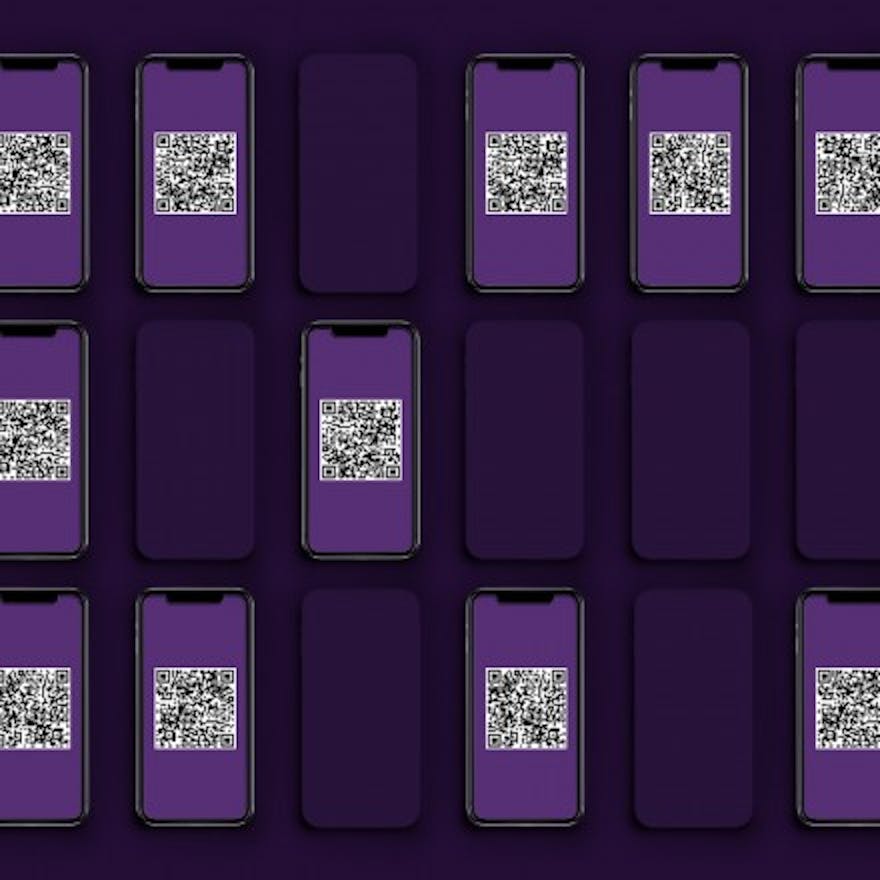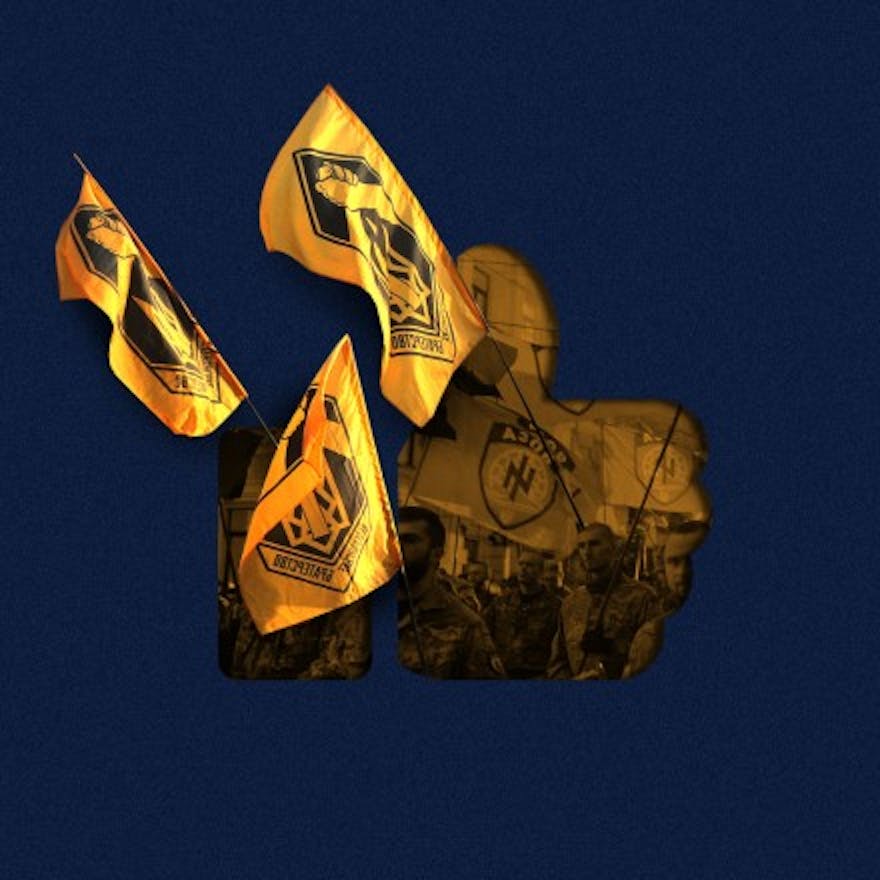THINK TWICE>>>and maybe 3 times
Ontario will no longer require people show proof of vaccination to enter any indoor spaces.
https://theintercept.com/2022/01/01/covid-vaccine-passports-surveillance/
“YEAH I USE the pass. What should I be afraid of?” That’s Jack, a friend who works in state and city politics, responding to a poll I posted on Facebook about digital Covid-19 vaccination passports. “Are you using one?” it asked. “Why’d you download it instead of using the paper card? Do you have any fears about it?”
The responses were untroubled. Using it: mostly yes. “Now that theater is back, [New York] Excelsior passes are handy, since proof of vax is mandatory,” wrote a critic. A retired teacher noted that the app is more durable; paper “rumples” and gets lost.
And fears? Mostly no. I sent Jack a few off the top of my head: “Concerns about privacy, misuse of digitized biodata, lack of transparency, more info in hands of tech companies and the state in some unknown collaboration.”
“The state already had vax data,” he replied. “I never considered the rest. Which answers your question about whether people were worried, in my case.”
The digital Covid vaccination certification, or “passport,” is a mobile app that instantaneously affirms the vaccinated status, Covid test results, birth date, gender, and/or other identifiers of its holder. The information is usually mosaicked in a QR code, read by a proprietary scanner, and linked to a government registry. Led by New York, California, and Louisiana, as many as 30 states are rolling them out. The Biden administration announced last spring that it would wrangle them under national standards but so far it hasn’t. Internationally, the EU and a growing number of countries are adopting them, from repressive regimes like Bahrain to democracies like Denmark.
New Zealand Prime Minister Jacinda Ardern heralded her country’s My Vaccine Pass as the keycard to the kingdom. “It’s actually really straightforward. If you’ve got a vaccine pass, you can do everything,” she announced, flashing a friendly shark grin. “Basically, that’s it.”
MOST READ
Not everybody is as nonchalant as Jack or as gung-ho as the PM. Twenty U.S. states have banned the passes, and hashtags like #NoVaccinePassports are proliferating on both sides of the Atlantic. “Spoiler alert,” tweeted British DJ, record producer, and anti-vaccine conspiracy-monger Lange. “They are not planning on removing vax passports once introduced. This is just the first step to get you conditioned to accepting government restrictions in your daily life via your mobile phone. This digital ID is going to expand to all aspects of your life.” Georgia Republican Rep. Marjorie Taylor Greene called the passport “Biden’s mark of the beast.”
Normally I’d rather have the mark of the beast tattooed on my forehead than write these words, but: Marjorie is not entirely wrong.
I’ve been double-vaxxed and boosted. Needless to say, I want to do everything — or at least go to the movies. I’ve handed my paper vaccine card to a dozen gatekeepers, but I’m not getting New York’s Excelsior Pass. So I too am bartering shreds of my personal data for brief furloughs from the cage. I’m not pure.
Still, I’m troubled. What else am I — are we — trading away? There’s no doubt something like the vaccine passport is here for good, beyond Covid. In the end, we may decide we want this thing. But we should go into it with our eyes open.
EVIDENCE SUPPORTS THE detractors’ suspicions. Every government introducing a vaccine certification vows that their use is voluntary and no personal information will be held beyond its necessity. International bodies including the World Health Organization, the EU, and the International Chamber of Commerce are crafting regulatory standards. But governments are far from unanimous even on such basics as whether you need to show the pass to enter a bar — much less on how long and by whom our intimate information will be held, owned, or overseen.

When biometric data — bodily attributes digitized — are married to surveillance technology, both the potential for profit and the ambitions of the techno-futurists inflate without limit. One industry analyst predicts the global biometrics market will grow 15 percent annually, reaching nearly $105 billion by 2028. The British tech firm Onfido envisions a seamless EU-wide identify verification, or IDV, system for online gambling, telemedicine, car rentals, electronic voting, “and more.” Scientists in academe and industry are working on a global biodata repository. It would be naïve to assume these networks would not be linked.
In 2020, Onfido called its immunity passport in development the “linchpin of a new normality in a post-COVID19 society.” This year, the company’s chief privacy officer (an Orwellian job title if ever there was one) told Biometric Update that proven immunity to the virus du jour might become a “basic permission attribute.” A Swedish company has introduced a vaccine certification microchip that can be implanted under the skin.
What should I be afraid of?
I HAVE NO beef with data collection per se. Data are the lifeblood of what Michel Foucault called the biopolitical state, which governs by maximizing life and sustaining populations rather than by threatening violence and imposing death, as earlier regimes had done. Logically, one of the chief institutions of the biopolitical state is public health. A big part of public health is containing transmissible, fatal diseases: keeping illness from becoming epidemic, and epidemics from mushrooming into pandemics. In the last century, that job has been the ambit of epidemiology, the science of the spread of disease.

Epidemiologists have a lot of tools, but many are stored in the drawer marked “surveillance” — identifying the first cases of a superspreader like Ebola, avian flu, or Covid-19; tracing and testing the patients’ contacts; treating or isolating those who’ve been infected — and all the while gathering and analyzing data to predict the routes the pathogen will take and the bodies it will hijack to keep traveling. The data then go into larger databases to parse when the next murderous bug comes along.
Biodata can serve the public good — or they can give ammunition to eugenicists or evidence to the prosecutors of an HIV-positive person who failed to inform a lover of his serostatus, a felony in some states. In the biopolitical state, there is no bright line between benign and malign surveillance.
In the biopolitical state, there is no bright line between benign and malign surveillance.
Similarly, prevention and cure can look a lot like discipline and punishment. When the Trump administration squandered the opportunity to use less draconian epidemiological measures, the nation was pitched into extreme action: lockdown. Jeffrey Escoffier, a historian of sexuality, queer activism, and public health, was alarmed. Quarantine is a grave incursion on liberty, he told me. During the two decades he served as director of health media and marketing for the New York City Department of Health and Mental Hygiene — “propaganda minister for the biopolitical state” — the decision to impose it on even one person was taken with caution. But lock up everyone? Self-isolation is sometimes necessary. It is also the carceral function of the health-protecting state; the doctor moonlights as a prison warden.
During Italy’s lockdown, the philosopher Giorgio Agamben blogged about the “techno-medical despotism” so focused on eliminating the risk of contagion to preserve mere biological existence — what he calls “bare life” — that it prohibited everything that makes human society meaningful, from dating to democracy. “How could we have accepted,” he asked in a New York Times interview, “in the name of a risk that we couldn’t even quantify, not only that the people who are dear to us … should have to die alone but also — and this is something that had never happened before in all of history from Antigone to today — that their corpses should be burned without a funeral?” Actually it has happened before: during the plagues of the Middle Ages, according to Foucault, the birthplace of the biopolitical state.
 Read Our Complete CoverageThe Coronavirus Crisis
Read Our Complete CoverageThe Coronavirus CrisisBut we don’t have to look back that far to see a wish for perfect security trumping everything else that matters. The surveillance technologies of the War on Contagion are inherited from the War on Terror, and the software is encoded with the same forever-war mentality: Both fight risk rather than actual threat. When the enemy is protean, like suicide bombers and viruses, the calculation of risk is easily manipulated and often subjective. My partner and I used to argue about whether to wash the milk cartons from the supermarket. Now we listen to delphic sentences like this one, from Chief White House medical adviser Anthony Fauci speaking of the omicron variant on NPR: “You have so many cases it essentially obviates any diminution of the severity, because of the quantitative number of cases that you’ll get with such a highly transmissible virus.” Then we Google the latest statistics and argue about whether to eat out.
Risk cloaked in statistics is a ghost in a suit. It starts to resemble a person. Who is the terrorist? Who is the Covid carrier? Among the contradictions of the pandemic is that collective safety requires honesty and mutual trust, yet the expression of that trust is vigilant mutual suspicion. The best bet is to fear everyone.

The vaccination passport seems to solve this problem, replacing suspicion with certainty. But in admitting the vaccinated and deporting the unvaccinated, it also sorts the good biocitizen from the outlaw. The rhetoric of contagion has long mobilized xenophobia and legitimized racist and eugenicist citizenship and immigration policies (think Donald Trump’s “Chinese virus”). American University historian Alan M. Kraut calls this “medicalized nativism.”
“Securing borders is all about fear. The action of fear is to restrict movement.”
“Passports have everything to do with borders,” says Jenell Johnson, associate professor of rhetoric, politics, and culture at the University of Wisconsin-Madison and a co-editor of “Biocitizenship: The Politics of Bodies, Governance, and Power.” “Securing borders is all about fear. The action of fear is to restrict movement. The passport allows for movement in both physical and economic ways. It also immediately suggests belonging — the people who belong and people who don’t.”
A pocket-size dossier of one’s “attributes of permission” affords its holder a sense of inclusion, and thus protection from a menacing world. My Facebook friends told me as much. “What I like about Excelsior is the extra level of confirmation it offers — the info individuals input is checked against a database,” responded one woman. “Basic steps to avoid fraud make me feel better about being in a venue with similarly vaccinated and vetted people.” In fact the apps are subject to fraud, glitches, and haphazard use; they may provide more security theater than security. Anyway, the omicron variant is infecting everyone, vaccinated or not. But even skeptics are buying the ticket. Wrote one: “I’d rather hand over my personal info to some corporation than eat [in a restaurant] next to the unvaccinated.”
I too want to eat in a restaurant, away from the unvaccinated. But to be honest, it’s not just because I don’t want to get sick. It’s because I despise them — whoever they are — the sans-papiers. I am not proud of this.
“WE ARE GOING to be living in pandemic societies for the rest of our lives,” predicted Escoffier, the historian. “What does this mean politically?” I wondered: Can public health kill public life?
Perhaps it was inevitable that in a nation where mutuality is in splinters, isolation turned from prescription to preference. Workers reconsidered the rewards of in-person colleagueship and deemed them not worth the commute. Shopkeepers slid the credit card reader forward, recoiling from accidental touch. We all withdrew further into our screens. Human connection squeezed further into digital pathways patrolled by corporations. With the decline of casual social intercourse in public spaces we are unlearning the instincts and emotions — the very notion — of the social. Babies are starting life without ever seeing a stranger’s smile.
Omicron is leapfrogging from body to body. The virus is no doubt busily mutating. Now the corporate digital police are reinforced by agents of the biopolitical state, armed with scanners. They read our QR codes and unlock our cells. Who does not want out?
The vaccine passport embodies the contradictions of the pandemic that birthed it. It guards borders, divides us from them. It also facilitates travel, and travel is an antidote to tribalism. In either case, it is not going away. Therefore, if it is indeed the prototype linchpin of a future global, digital hyper-surveillance apparatus, we must demand that it be universally accessible, publicly owned and regulated, its workings transparent, and its uses stringently defined.
For the moment, the vaccine pass is allowing us to repopulate the third spaces and revitalize the public square, where accidental touch accustoms us to tolerance and minor conflict conditions us for democratic discourse. Technologies encode their makers’ and users’ values. This one must serve the survival of the social.






No comments:
Post a Comment